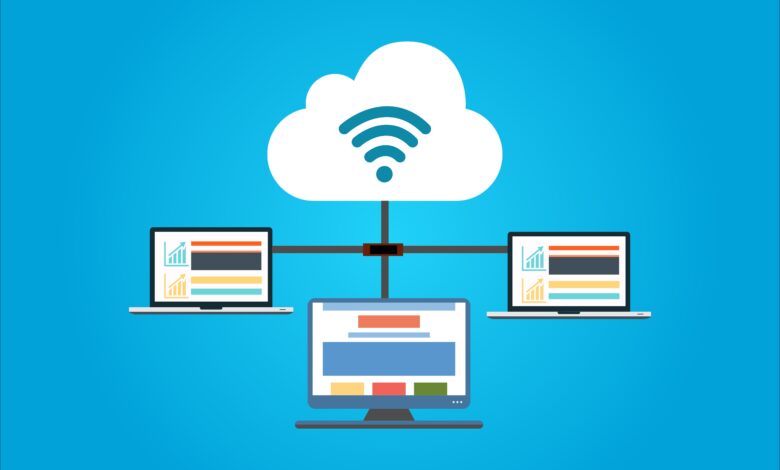How Should a Beginner Start Cloud Computing in Hyderabad?

Cloud computing has changed the core infrastructure of the software business. Every professional in the IT industry can adapt to cloud computing irrespective of their role and embark on a career as a cloud-like developer, tester, architect, manager, and executive. For those who are new to this field, cloud computing refers to data storage, access, and on-demand computing service over the internet. There is no data storage on local computers; and computer services like data storage, hosting, servers, networking, databases, and others are provided on demand online. It typically reduces a company’s high demand for hardware and software locally and allows access to everything just like people open websites through a browser.
Starting with the basics is the best way for beginners to understand cloud computing. Knowledge of virtualization, networking, operating systems, and major cloud services providers are the core concepts beginners need to gain expertise in to start with cloud computing. For a newbie, the very idea of cloud computing will be an adventurous path. So, it is better to take cloud computing training in Hyderabad, Bangalore, Pune, or any other city and make yourself more employable before appearing for any interviews.
This article discusses how one can explore the world of cloud computing, especially if they are beginners.
Starting a Cloud Computing Career
Cloud computing is a major technology contributing to an organization’s digital transformation strategy. So, now is the right time to start a cloud computing career. Here are some of the things that can help you get started.
Educational background – People first think about the educational qualifications when starting their career in any field. When it comes to cloud computing, a bachelor’s degree in computer science, information technology, or related field is recommended. However, even if you are from a non-technical background, the doors to a cloud career are still open for you. You just need to be dedicated, focused, and take proper training to build a strong foundation in this field.
Technical Skills – Post the educational qualifications, one needs to have a clear understanding of what technical skills are expected from a cloud practitioner. First off, good programming skills are essential to deal with cloud-based systems. You can learn Java, Python, SQL, or JavaScript and become familiar with how they are used in cloud computing.
Next, ensure that you know about the working of Linux, Windows, and other operating systems. It is important to grasp the basics of networking, security and privacy, databases, and Agile development and virtualization as part of cloud computing fundamentals. The virtualization notion is the discovery that facilitates the cloud and enterprises to join their server locations. It allows the creation of virtual environments.
Networking is another tricky concept beginners should be aware of. It will take more time to learn networking than servers, operating systems, and virtual machines. One can start with a virtual private cloud to communicate with and connect with the actual server, which is a virtual communication center called VPC on each virtual machine.
Next, one should explore other concepts of cloud com-puting like disaster recovery, DevOps, security, containers, web services and APIs, managing the integrated environment, securing the cloud environments, and securing the cloud environments. Finally, you should become proficient in using any of the cloud computing platforms like Amazon Web Services (AWS), Microsoft Azure, or Google Cloud Platform (GCP).
Training Course – Looking at the technical skills may seem overwhelming for some beginners. An easy way out for them is an online training course on cloud com-puting. You can easily enroll in a reputed online course and gain all these skills from the comfort of your home, and that too from industry experts present across the world. Some training providers also collaborate with renowned universities and their faculty members give guest lectures which are quite valuable for learners.
Certifications – To land a rewarding job in cloud com-puting, you need to go beyond gaining the relevant skills, you need to demonstrate them. So, try to achieve industry-recognized credentials offered by service providers like AWS, Azure, and GCP. Apart from benchmarking your cloud skills, these certifications can lead you to a high-paying job. Here are some of the certifications you can add to your resume.
- AWS Certified Solutions Architect Associate
- Microsoft Certified: Azure Fundamentals
- Microsoft Certified: Azure Administrator Associate
- Google Certified Professional Cloud Architect
- CompTIA Cloud+
All these certifications are associated with an exam and you can take a training course to prepare for it. Companies across the globe recognize these certifications as most of them use cloud services for various purposes and need skilled cloud practitioners who can use them effectively.
To Conclude
Cloud computing is, indeed, the future, and organizations, governments, and individuals are embracing it to reduce costs while raising the efficiency and utility of IT services and processes. Enrolling in a well-orchestrated and planned cloud computing course is one of the best ways to add the necessary skills and start a rewarding cloud career. So when are you stepping into the cloud com-puting space?




![[pii_email_af9655d452e4f8805ebf]](https://techdailymagazines.com/wp-content/uploads/2021/09/PicsArt_09-05-12.13.20-390x220.jpg)
